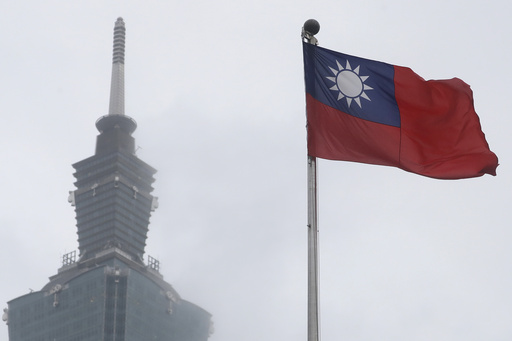BANGKOK — The recent shift in U.S. policy regarding Ukraine under President Donald Trump has raised alarms about China potentially feeling empowered to assert its claims over Taiwan. However, analysts suggest that China is likely taking a cautious stance, waiting to observe the developments in Europe before making any significant moves.
In the past fortnight, Trump has made several controversial assertions about Ukraine, including the erroneous claim that Ukraine “should have never started the war” and suggesting that it “may be Russian someday.” He has also questioned the legitimacy of Ukrainian President Volodmyr Zelenskyy while disrupting the longstanding U.S. strategy of isolating Russia due to its aggressive behavior by initiating direct negotiations with Moscow and echoing sentiments aligned with the Kremlin.
While visiting Washington for discussions with Trump, French President Emmanuel Macron stated that he would stress the importance of presenting a united front against Russian President Vladimir Putin. Macron plans to convey to Trump that appearing weak in the face of Putin could undermine U.S. credibility when addressing challenges posed by China.
The relationship between Ukraine and Taiwan is intertwined as both regions face territorial claims from larger powers—Moscow asserting Ukraine belongs to Russia and China claiming Taiwan as its territory. President Xi Jinping has left open the possibility of using force to reclaim Taiwan. Following Trump’s comments, there are concerns in Taiwan about the reliability of U.S. support, leading some to wonder if the U.S. might similarly abandon them. Russell Hsiao, director of the Global Taiwan Institute in Washington, emphasized that, while Trump’s remarks are under scrutiny, it’s likely that Beijing will refrain from making any drastic moves based solely on U.S. policies regarding Ukraine.
During Trump’s presidency, he enjoyed considerable popularity in Taiwan, credited with strengthening relations between the U.S. and the island. U.S. law mandates that Washington provide Taiwan with the necessary military resources to deter mainland aggression but maintains a policy of “strategic ambiguity” regarding direct military intervention. Recently, Trump has criticized Taiwan, arguing that it should compensate the U.S. for its defense and accusing it of stealing semiconductor business opportunities from the U.S.
Additionally, Trump has appointed a number of officials known for their hardline stance on China to key positions in his administration, such as Secretary of State Marco Rubio and Defense Secretary Pete Hegseth. After discussions with NATO allies in Brussels, Hegseth highlighted that a withdrawal of U.S. support from Ukraine would allow a renewed focus on the Asia-Pacific region, with European nations taking responsibility for their own defense.
In a joint statement with counterparts from Japan and South Korea, Rubio emphasized that maintaining peace in the Taiwan Strait is critical for global security and prosperity. In a move that displeased Beijing, the U.S. State Department removed a reference opposing Taiwanese independence in an updated fact sheet about the island.
Meia Nouwens, a senior fellow at the International Institute for Strategic Studies in London, suggested that the comments regarding Ukraine from U.S. officials would catch Beijing’s attention. Hegseth’s remarks about shifting U.S. priorities to the Indo-Pacific may not be reassuring for China, which could interpret these changes as indicative of U.S. unreliability as an ally. She notes that while China might take this opportunity to paint the U.S. as inconsistent, it is unlikely to conclude that the weakening U.S. stance on Ukraine signals openness toward China’s ambitions regarding Taiwan.
Euan Graham, a defense analyst from the Australian Strategic Policy Institute, pointed out that early in Trump’s tenure, concerns arose about a potential softening toward China, although Trump ultimately adopted a tougher position. Graham warned that while allies should be worried about current shifts in U.S. support for Ukraine, drawing parallels to Taiwan’s situation could be misleading. He posits that the U.S. might be attempting to reframe the Ukraine conflict as a European issue to strengthen its position vis-à-vis China, though he cautioned that this strategy could set a hazardous precedent.


